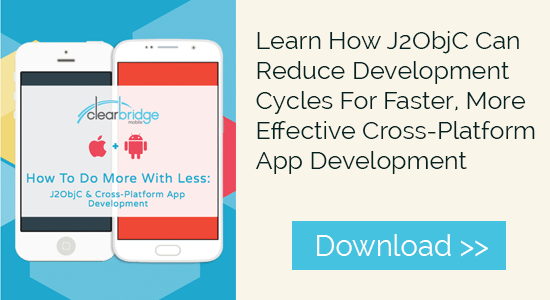Anyone with experience in mobile knows that the technology advances quickly. Anything from OS versions to new devices to emerging technologies are testament to this. Staying up-to-date is key to remaining competitive, for companies and developers alike.
Every new mobile technology can pose a threat or open up new windows of opportunity. In the ever-changing world of mobile, it is the ability to adapt and innovate that separates the winners from the losers.
Keeping Up With New Technologies
Our philosophy is to embrace the idea of full stack development and constantly experiment with the latest technologies (this has allowed us to build the world’s first HCE-enabled closed loop mobile wallet and launch a touchless payments platform before Google).
While we don’t expect every member of our team to be an expert in everything, we encourage them to experiment and familiarize themselves with new technologies.
Below is a list of 22 technologies that we think every mobile development team needs to know:
- J2ObjC – Converts Java to Objective-C. Allows you to code all business logic only once to reduce duplicate code by 70-80%
- juniversal – Converts Java to C# (and soon C++/Objective C++)
- GWT – Java to JavaScript compiler and web framework (Initial set-up can be a bit difficult)
- Gson – Converts Json data to Java Templated Objects
- SimpleXML – Converts XML data to Java Templated Objects
- Livescript – Compiles to JavaScript. It is easier to write, with fewer lines of code, many shortcuts, and the ability to write expressive code
- Objective-J – A new programming language based on Objective-C. It is a superset of JavaScript, which means that any valid JavaScript code is also valid Objective-J code (iOS developers will feel right at home)
- AngularJS – A JavaScript framework that allows expanding of HTML functionality and offers MVC design pattern for developing web and hybrid mobile apps
- Ionic Framework – A framework for developing UI for hybrid mobile apps using HTML5, it also integrates with AngularJS
- ActionHero.js – Simplifies the development of JavaScript server
- Heroku – A cloud platform as a service (PaaS) that provides everything needed to build, run, and scale mobile applications
- three.js – JavaScript framework for rendering 3D models using webGL
- PhysiJS – JavaScript plugin for three.js that enables physics simulations without impacting performance of the website
- Android Studio – The official (and the best) IDE for Android development
- AltBeacon – The Android version of iBeacon
- Apple Watch – Smartwatch that runs iOS
- Android Wear – Smartwatches that run Android
- HoloLens – Windows hologram goggles
- Oculus Rift / VR tech – Virtual reality goggles
- Leap Motion – Detects hand movements in front of a sensor
- Fove – Eye tracking virtual reality goggles
- Myo – Hand gesture recognition using arm bands
One thing that is notable about this list is that it contains more than programming languages. Wearables, VR technology, server-side technologies: these are part of a robust mobile ecosystem that will only become more popular and important as the mobile space evolves.
The Importance of Embracing Change
Having a diverse knowledge of different mobile technologies offers many advantages, including:
- A broader understanding of how all aspects of a project work together
- Knowledge of common practices and how particular technologies deal with pitfalls and shortcomings
- A more dynamic, versatile team that produces better end products
- An environment that sparks innovation and embraces change
Any mobile development team should embrace the idea of change. Mobile moves fast, and without the drive to innovate and adapt, you can easily become obsolete.






